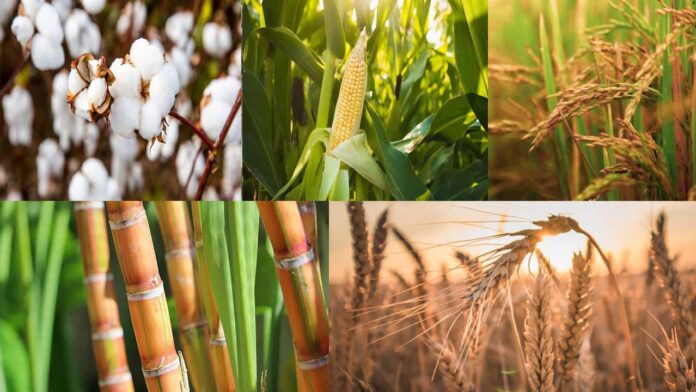Agriculture plays a vital role in Pakistan’s economy, contributing significantly to the country’s GDP and providing employment opportunities to a large portion of the population. In recent years, there have been several emerging trends in agriculture in Pakistan that are transforming the way farming is practiced, leading to increased productivity, sustainability, and economic growth. In this article, we will explore some of these trends and their benefits for Pakistan’s agriculture sector.
Precision Agriculture:
Precision agriculture is a modern farming approach that uses technology to optimize crop production by taking into account various factors such as soil health, weather conditions, and crop requirements. In Pakistan, precision agriculture is gaining popularity, with farmers adopting technologies such as remote sensing, drones, and GPS-based systems to monitor and manage their crops more efficiently. These technologies enable farmers to precisely apply fertilizers, pesticides, and irrigation water, resulting in improved crop yields, reduced input costs, and minimized environmental impact.
Climate-Smart Agriculture:
Pakistan is vulnerable to the adverse effects of climate change, including erratic weather patterns, water scarcity, and soil degradation. Climate-smart agriculture (CSA) is an innovative approach that focuses on sustainable farming practices to adapt to and mitigate the impacts of climate change. CSA techniques, such as conservation agriculture, agroforestry, and crop diversification, are gaining traction in Pakistan, as they promote soil health, water conservation, and biodiversity while enhancing farmers’ resilience to climate-related risks.
Organic Farming:
With increasing global demand for organic food, organic farming is gaining momentum in Pakistan. Organic farming avoids the use of synthetic fertilizers, pesticides, and genetically modified organisms, relying instead on natural processes to maintain soil fertility, control pests, and manage diseases. Organic farming practices promote biodiversity, protect natural resources, and produce healthier and safer food for consumers. Moreover, organic products often fetch higher prices in domestic and international markets, providing economic benefits to farmers.
Value-Chain Integration:
Value-chain integration is a modern concept that involves linking farmers to markets through coordinated supply chains. In Pakistan, value-chain integration is becoming popular, as it provides farmers with better access to markets, fair prices, and higher profits. Through value-chain integration, farmers can engage in contract farming, where they receive technical assistance, credit, and market information from agribusinesses or cooperatives. This enables farmers to produce crops that meet market demand, resulting in improved income and livelihoods.
Mechanization and Automation:
Mechanization and automation are transforming agriculture in Pakistan, as farmers are adopting modern machinery and equipment for various farm operations. Tractors, harvesters, seeders, and planters are becoming more common on farms, reducing labor-intensive tasks, increasing productivity, and improving the quality of work. Moreover, precision planting and harvesting technologies are helping farmers achieve uniform crop stands, optimal spacing, and precise seed placement, resulting in higher yields and reduced losses.
Access to Finance and Insurance:
Access to finance and insurance is crucial for smallholder farmers in Pakistan, as it enables them to invest in modern technologies, purchase quality inputs, and manage risks associated with crop failure or price fluctuations. In recent years, there has been an increasing focus on providing farmers with improved access to finance and insurance. Microfinance institutions, agricultural credit banks, and insurance companies are working to provide affordable credit and insurance products tailored to the needs of farmers. This has helped farmers invest in modern farming practices and mitigate risks, resulting in improved productivity and income stability.



